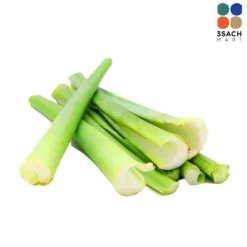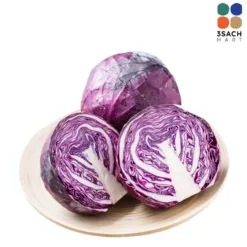Water Drop Squash
Liên hệ
Nutritional Value of Teardrop Squash
According to the U.S. Department of Agriculture (USDA), 100g of teardrop squash provides:
-
30 calories
-
7g carbohydrates
-
3g dietary fiber
-
100g protein (likely a typo; should be ~1g)
-
0g fat
-
10mg vitamin C
-
350mg potassium
-
1mg iron
-
15mg magnesium
-
20mcg folate (B9)
-
25mg calcium
-
44mg phosphorus
With its impressive nutrient profile and numerous health benefits, teardrop squash is not only a delicious vegetable but also a valuable addition to any healthy diet—suitable for all ages and dietary goals.
Health Benefits
👁 Protects Eye Health
Rich in beta-carotene, a precursor of vitamin A, teardrop squash helps maintain corneal health, supports retinal pigment production, and prevents age-related eye diseases such as macular degeneration and cataracts.
🛡 Boosts Immune System
Packed with vitamin C, a powerful antioxidant, it helps stimulate the production of white blood cells and enhances the body’s ability to fight off infections—ideal during flu seasons.
🧻 Improves Digestion
With a high fiber content, teardrop squash supports healthy digestion by promoting bowel regularity and preventing constipation. Fiber also helps maintain a balanced gut microbiome.
⚖ Supports Weight Loss
Its low calorie and high fiber composition make it a great option for those on a weight management or dieting plan. Fiber increases satiety and curbs overeating.
❤️ Heart-Healthy
Potassium in teardrop squash helps regulate blood pressure by counteracting sodium’s effects—essential for people with hypertension or at risk for cardiovascular disease.
🧬 Cancer Prevention
Rich in antioxidants like beta-carotene and vitamin C, this squash protects cells from oxidative stress—reducing the risk of cancers such as lung and skin cancer.
🦴 Bone & Dental Health
Calcium and magnesium are crucial for strong bones and teeth. Calcium builds bone mass, while magnesium regulates calcium absorption and helps prevent muscle cramps.
✨ Skin Health
Beta-carotene shields the skin from UV damage, delays signs of aging, and minimizes wrinkles. Vitamin C boosts collagen production, promoting firmer and more youthful skin.
🍬 Blood Sugar Control
Thanks to its low glycemic index and moderate carbohydrate level, teardrop squash helps stabilize blood sugar—beneficial for diabetics or those at risk of type 2 diabetes.
🧠 Brain Function
Folate (vitamin B9) supports cell formation and protects the nervous system. It’s especially critical for pregnant women, helping prevent neural tube defects in fetuses.
Popular Dishes Made With Teardrop Squash
🥣 Teardrop Squash Soup with Shrimp
A comforting, sweet-flavored dish perfect for any season:
-
Peel and clean shrimp, season with salt, pepper, and minced shallots.
-
Clean the squash (leave whole or cut in half).
-
Sauté the shrimp with onion, add broth, bring to boil.
-
Add the squash and cook until tender.
-
Garnish with scallions and pepper before serving.
🍲 Teardrop Squash Stewed with Pork Bones
Ideal for cold days, this rich and savory soup is both nourishing and satisfying:
-
Clean and blanch pork or chicken bones. Simmer for 30–40 minutes to make broth.
-
Add whole or halved squash, cook until soft.
-
Season to taste, and garnish with scallions and cilantro.
🍵 Creamy Teardrop Squash Soup
A smooth, nutrient-rich soup that works well for breakfast or as an appetizer:
-
Peel, boil, and puree the squash.
-
In a pan, sauté chopped onions, add cream and chicken broth.
-
Mix in squash puree, stir until smooth and creamy.
-
Season with salt, pepper, and garnish with herbs.











Reviews
There are no reviews yet.